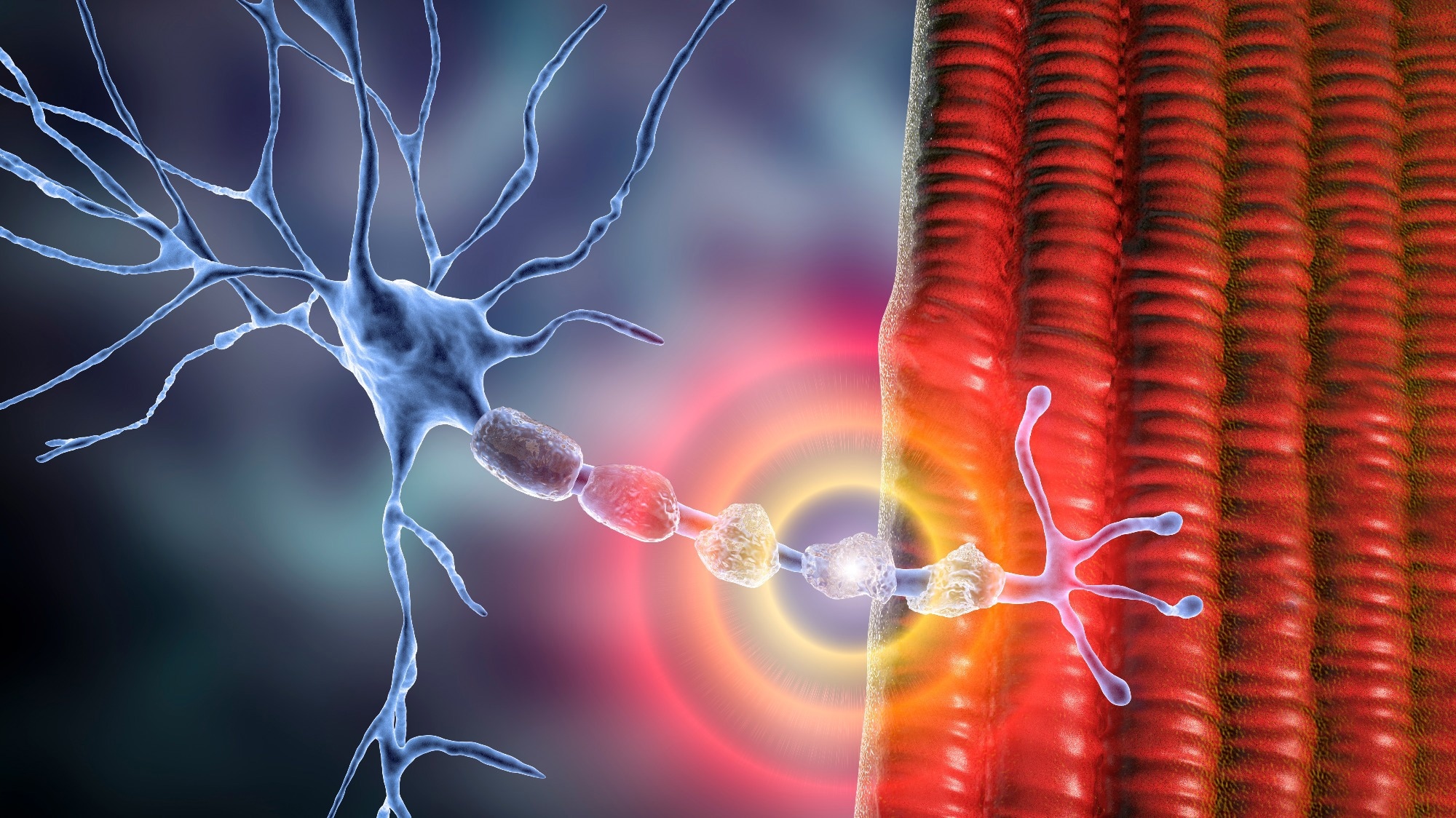New MS Australia research funding announced today aims to unlock new insights into disease progression, address social needs for better multiple sclerosis (MS) care, and identify biological signs of MS.
The three incubator grants will test new concepts in MS research and gather early data in pursuit of better diagnosis and treatment for people with the disease.
 Demyelination of neuron, the damage of the neuron myelin sheath seen in demyelinating diseases. Image Credit: Kateryna Kon / Shutterstock
Demyelination of neuron, the damage of the neuron myelin sheath seen in demyelinating diseases. Image Credit: Kateryna Kon / Shutterstock
The recipients of MS Australia's latest one-year grants, Dr. Xin Lin (University of Tasmania), Ms. Isabelle Weld-Blundell (The University of Melbourne), and Dr. Dongang Wang (The University of Sydney) will undertake pioneering projects with a strong emphasis on fresh 'outside the box' ideas, addressing a spectrum of unmet needs in MS.
Dr. Julia Morahan, MS Australia Head of Research, says the incubator grants are an important piece of the research funding strategy to accelerate further significant breakthroughs in our knowledge of MS.
"With MS on the rise and early diagnosis crucial, these projects will investigate a range of ways to improve outcomes for those living with the disease, hopefully leading to full-scale projects in the future," Dr Morahan said.
MS Australia, through the incubator grant scheme, plays a vital role in increasing the capacity for MS research in Australia by supporting the development of pilot data for new concepts in the biological mechanisms of MS and improving care for those living with the disease.
MS Australia has awarded $74,813 for these three new incubator grants.
Over the past 50 years, it has funded over 360 research projects and committed over $54 million to MS research projects.
Dr. Xin Lin from the Menzies Institute for Medical Research, University of Tasmania, will investigate biological markers of MS for better diagnosis and treatment using large international datasets that may help identify new targets for MS diagnostic and therapeutic innovations.
"This incubator grant will support a pilot study in which my team and I will measure and evaluate thousands of proteins as potential biological markers of MS," Dr. Lin said.
Ms. Isabelle Weld-Blundell from The University of Melbourne, Victoria, will review the screening tools currently available to assess a range of social needs that impact the health of people living with MS, such as access to safe housing, domestic circumstances, food security, and affordable healthcare, with a view to tailoring these for people with MS.
Ms Weld-Blundell says focusing on social factors in MS research may open new avenues for intervention and marks a promising shift in our approach to care.
"I am incredibly thankful to be awarded this incubator grant, which will enable us to work towards addressing social factors - like employment, housing, and social inclusion - in MS care," Ms. Weld-Blundell said.
Dr. Dongang Wang from The University of Sydney, NSW, will explore how artificial intelligence (AI) technology can help analyze electronic health records and brain imaging data to predict MS progression.
Dr Wang hopes to develop a tool that can be easily implemented in the clinic to enable early intervention with highly effective treatments in people who are at greatest risk of MS disease progression.
"Leveraging AI to advance the prediction of disease progression in MS, could contribute to early intervention strategies, personalised treatments, and ultimately enhance patient outcomes and advance our overall understanding of MS," Dr. Wang said.
Associate Professor Des Graham, president of MS Australia, says the new grants highlight MS Australia's continued support of research that seeks to improve the quality of life for people with MS.
"It is thanks to the generous donors and participants of our annual flagship event The May 50K, which sees every dollar raised go to MS research, that we can fund these exciting projects toward our mission to find a cure for MS," Associate Professor Des Graham said.
Rohan Greenland, MS Australia CEO, echoed that sentiment and believes the new projects hold great promise for advancing MS research.
"I eagerly await the outcomes as they have the potential to bring us another step closer to our ultimate goal of stopping MS in its tracks,' Mr Greenland said.